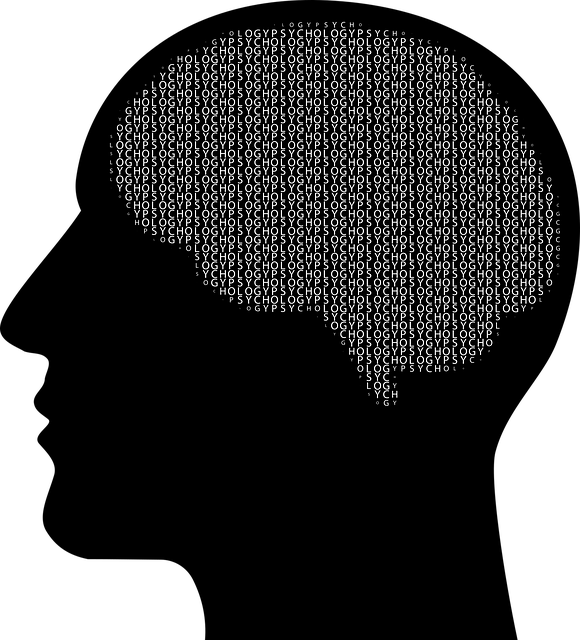Northglenn Young Adults Therapy (NYAT) emphasizes cultural competency as a core principle, ensuring diverse healthcare for young adults. By integrating cultural sensitivity into practices, NYAT delivers personalized care that respects unique beliefs and identities, addressing disparities often faced by minority patients. Their comprehensive training programs equip therapists with knowledge of various cultural backgrounds, communication strategies, and coping skills development to create safe spaces. This holistic approach fosters trust, enhances patient outcomes, and promotes an inclusive environment, setting NYAT as a leader in equitable mental health care.
“Cultural competency in healthcare is no longer a nice-to-have, but an imperative for delivering quality patient care. This comprehensive guide explores this critical aspect, focusing on its impact on diverse populations and highlighting successful initiatives like Northglenn Young Adults Therapy.
We’ll delve into key strategies for training programs, measuring success, and addressing biases to ensure equitable healthcare access. By understanding cultural nuances, providers can foster inclusive environments, ultimately enhancing patient outcomes.”
- Understanding Cultural Competency in Healthcare: A Necessity for Quality Care
- The Impact of Cultural Biases and Stereotypes on Patient Outcomes
- Northglenn Young Adults Therapy: Fostering an Inclusive Environment
- Key Components of Effective Cultural Competency Training Programs
- Measuring Success: Evaluating the Effectiveness of Cultural Competency Initiatives
Understanding Cultural Competency in Healthcare: A Necessity for Quality Care

In the dynamic landscape of healthcare, cultural competency has emerged as a cornerstone for delivering quality care to a diverse patient population. This concept goes beyond basic language translation; it involves understanding and appreciating the unique cultural beliefs, values, and practices that shape an individual’s health perspective. At Northglenn Young Adults Therapy, we recognize that cultural sensitivity is not just a preference but a necessity. By incorporating cultural competency training into our practices, we ensure that every patient receives personalized care tailored to their specific backgrounds.
This holistic approach allows healthcare providers to bridge the gap between diverse communities and modern medical practices. For instance, training in mood management techniques can be significantly influenced by cultural perspectives on mental health. Similarly, stress reduction methods and crisis intervention guidance can benefit from understanding ethnic-specific coping mechanisms. By integrating these insights, Northglenn Young Adults Therapy aims to provide comprehensive support that resonates with each patient’s cultural identity, ultimately fostering better health outcomes.
The Impact of Cultural Biases and Stereotypes on Patient Outcomes

Cultural biases and stereotypes can significantly impact patient outcomes within healthcare settings, particularly when dealing with diverse communities. Healthcare providers, often unaware of their own unconscious prejudices, may inadvertently influence treatment decisions based on racial, ethnic, cultural, or religious stereotypes. This can lead to disparities in care, where certain groups experience less access to quality services or receive less effective treatments. For instance, a study by Northglenn Young Adults Therapy revealed that minority patients are sometimes subjected to misdiagnoses due to stereotyped expectations of their symptoms, hindering accurate treatment plans and potentially causing long-term harm.
The consequences of these biases extend beyond individual patients, affecting community health outcomes as a whole. Stereotypes can foster a sense of distrust between healthcare providers and diverse populations, making it challenging for them to seek necessary care. This is especially critical in promoting mental wellness, where emotional intelligence and confidence-boosting strategies play a vital role in therapy’s success. Development of mental wellness coaching programs that address cultural competency is essential to overcoming these barriers and ensuring equitable access to quality healthcare services.
Northglenn Young Adults Therapy: Fostering an Inclusive Environment

Northglenn Young Adults Therapy is dedicated to creating an inclusive environment that respects and values the diverse backgrounds and experiences of its clients. Cultural competency training plays a pivotal role in this mission, ensuring therapists are equipped to provide sensitive and effective care. Through ongoing education, the therapy team learns about various cultural beliefs, practices, and challenges faced by young adults from different ethnic, racial, and socioeconomic groups. This knowledge enables them to deliver services that are tailored to individual needs, fostering trust and openness.
The training equips therapists with essential tools for navigating complex interpersonal dynamics and promoting positive Emotional Healing Processes. By integrating effective Communication Strategies, therapists create safe spaces where clients can express themselves honestly. Additionally, the focus on Cultural Competency Training empowers the team to facilitate Coping Skills Development, empowering young adults to navigate life’s challenges resiliently and confidently.
Key Components of Effective Cultural Competency Training Programs

Effective cultural competency training programs for healthcare providers in Northglenn Young Adults Therapy settings should incorporate several key components. Firstly, they must offer a comprehensive overview of various cultural backgrounds and beliefs, fostering an environment where all patients feel understood and respected. This involves not just learning about different cultures but also practicing empathetic communication techniques that bridge gaps in understanding.
Additionally, these programs should focus on burnout prevention, given the high-stress nature of working with diverse young adults. Integrating Mind Over Matter principles and coping skills development can empower healthcare providers to manage their own well-being while enhancing their ability to support patients’ mental health journeys. Realistic role-play scenarios based on common challenges in therapy settings further enriches training, enabling professionals to navigate cultural nuances with enhanced confidence and sensitivity.
Measuring Success: Evaluating the Effectiveness of Cultural Competency Initiatives

Measuring success in healthcare provider cultural competency training is a multifaceted process that goes beyond mere participation. Effective initiatives should translate into tangible improvements in patient care and outcomes, fostering environments where diverse patients feel understood and respected. One key metric to track is changes in patient satisfaction scores related to cross-cultural communication. This can be measured through surveys that specifically probe cultural sensitivity, language accessibility, and staff responsiveness to diverse needs.
Additionally, evaluating the impact of training on healthcare providers’ attitudes and behaviors is crucial. Stress Management Workshops Organization, for instance, can assess whether participants report improved confidence in navigating cultural differences, better adoption of inclusive communication strategies, and enhanced willingness to adapt their practices to meet the unique needs of Northglenn Young Adults Therapy’s diverse clientele. Such evaluations often involve pre- and post-training assessments, focusing on knowledge retention, skill application, and perceived competence in handling cross-cultural interactions.
Cultural competency training is no longer a nice-to-have, but an imperative for healthcare providers. As evidenced by Northglenn Young Adults Therapy’s inclusive approach and successful outcomes, comprehensive programs that address biases and promote understanding can significantly enhance patient care. By implementing key components outlined in this article—including diverse perspectives, active listening, and continuous evaluation—healthcare organizations can create a more equitable and effective system. Investing in cultural competency training is not just beneficial for patients; it ensures providers can offer the highest quality care to a diverse range of individuals.








